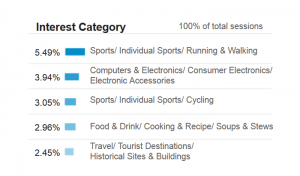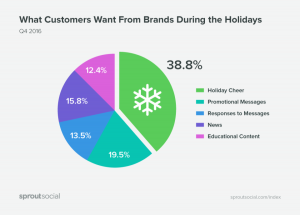— January 16, 2019

Affiliate marketing has been booming lately, and for all the positives that brings to the bottom lines of both merchants and publishers alike, there’s also the dirty side of it that’s ever-present: affiliate fraud. According to recent studies, “an estimated 2% of performance-driven transactions are likely cases of affiliate fraud.” Cyber Monday alone brought in about $ 1.3 billion from affiliate marketing, so in a single big shopping day, fraudulent activity accounted for $ 26 million.
Left unchecked, affiliate fraud can nibble away at your ROI. It’s important, especially at the start of a new year, to make sure that you can reliably identify, prevent, and stop affiliate fraud.
Identifying Affiliate Fraud
Fraud is a purposeful action, not a simple mistake. This means that fraud, unfortunately, comes from affiliate reps who actively want to game the system. Thus, your first line of defense is to identify good reps in the first place and vet partners as they sign up.
We’re not expecting you to spend hours checking their background and work history, but a quick Google of their name and online handles can reveal a lot. For example, most fraudsters don’t like to associate their online activities with their real names, so a disparity here can be a warning sign. You can vet partners quickly by adding certain custom fields to your affiliate registration form. Ask them to type in their Instagram or Twitter handles when they sign up, so you’ll have that on record. Then, check out their social profiles to make sure that their previous sponsored posts are on the level.

You can even segment affiliate reps into buckets so you can keep an eye on potential fraudulent activity. For example, if you have reps you’ve been working with for a while and that you trust, you can separate them out from newer reps that haven’t yet built up a history yet. This way, you’ll only have to look at one segment’s metrics to look for any anomalies.
Speaking of metrics, that’s a great way to identify potential fraud. You should know the average time it takes for a lead to convert into a sale. Is one affiliate rep converting much faster than others? It might be cause to check out their transactions. Also, you should know the average amount of returns from affiliate sales, meaning the ratio of returned items to total purchases. If a rep is responsible for a high volume of returns, that is a cause for concern.
For SMBs, vetting each potential affiliate partner is fairly easy as the numbers are low. For larger companies, vetting can be more of a headache. In these cases, make your affiliate application forms more thorough and be diligent about spot checking your partners. It will also help if you choose to build your affiliate program in-house, rather than rely on affiliate networks to send you unqualified (and often anonymous) publishers.
Preventing Affiliate Fraud
No business owner wants to, or has the time to, continually police their affiliate reps for potential fraud. That’s why it helps to encourage your reps to police themselves, and that can happen with two things you provide for them: an online discussion group, and some sort of leaderboard.
We’ve always recommended utilizing Facebook Groups or other online groups to encourage conversation and motivation, but another benefit is that your reps will get to know each other and voice concerns if something weird is going on. However, to know that something weird is going on, they need some metrics. That’s why a monthly leaderboard can help them police themselves.
For example, it’s natural for affiliate reps to want to glean advice and tactics from the best of the best. If “Steve” has been consistently topping the charts in terms of a certain metric (ie. total monthly conversions, total monthly revenue, etc), the other reps will check out his online presence and see what he’s doing right. And if “Steve” is doing something fishy? You can bet that your other reps will bring that to your attention.
Worried about revealing hard numbers? You can have a leaderboard anyway that just shows top sellers in relativistic amounts (ie. bar graphs that don’t show any hard numbers). Keep this leaderboard either in the online group, or in the affiliate area of your website.
And finally, tell your reps to keep an eye out for unusual activity involving your brand online. Provide a reward for tips on fraudsters. Fostering an honest and dependable community won’t just be a help in busting fraud, but will only make your affiliate marketing stronger.
Stopping Affiliate Fraud
Because most affiliate marketing is commission based on a sale, the two major types of fraud are identity theft (ie. stolen credit cards) and returns/chargeback fraud. The former is an ongoing problem for e-commerce in general, not just affiliate marketing, and if you have a foolproof way of avoiding identity theft… well, you probably can sell your method for millions upon millions of dollars. Unfortunately, besides the usual methods of asking for the CVV number and vetting personal information, it’s a tough one to solve.
The latter fraud, returns/chargeback fraud, can be somewhat mitigated by making your returns window shorter than your affiliate payment window. For example, you can offer free product returns for 25 days from day of sale. However, you pay your reps on a next month schedule: commissions for sales in, say, June are paid out at the end of July.
This gives you time for two things: 1) stop payments for any returns you suspect is fraud, and 2) stop payments for chargebacks you suspect is fraud. In essence, giving yourself 30+ days to pay commissions gives you time to investigate suspicious activity in order to stop fraud dead in its tracks.
Of course, waiting longer to pay out commissions can irritate your reps, so our suggestion is to use this tactic only if you’re continually getting burned by returns/chargeback fraud. But know that it’s in your arsenal in case you need to weed out the affiliate partners gaming the system, before they can take off with their unearned commissions.
Digital & Social Articles on Business 2 Community
(68)







